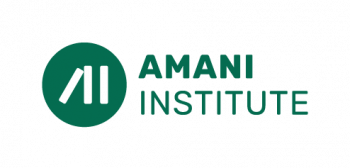Springtime in Washington DC is also career-planning time for the thousands of students in this college-and-government town. This is when universities scour the beltway’s networks to find people who hold jobs their students want to have, and invite them to provide been-there-done-that wisdom and share professional scar tissue with students soon to hit the workforce.
In the last two weeks, I’ve attended one such panel on careers in international development at Georgetown University’s new Master’s in Global Human Development Program, and spoken at another at George Washington University’s Elliott School of International Affairs. Across both panels, I was struck by how much professionals across diverse organizations agree on what students can do to best position themselves for fulfilling employment after graduation.
The speakers on both panels represented the following organizations:
- The World Bank
- USAID
- Development Alternatives Inc. (DAI)
- CDC Development Solutions
- Strategic Social
- The US Trade and Development Agency
- Ashoka
What’s noticeable about this list is the wide representation across the international development sector: government agencies, multi-lateral entities, private sector development firms, and nonprofits. Here are some of the suggestions the panels offered to those seeking careers in these types of organizations, all of which induced nods of agreement across the rest of the panelists:
1) If you’re a young person graduating today, you should have mastered social media by the time you graduate because it’s a skill that you can bring to the table (of the organizations you want to work at).
2) Some of the other essential skills for the next decade are collaboration and working in teams, mobility across cultures, a global mindset and ability to connect dots across borders, in addition to specific technical and functional skills.

Can you take one look at this photo and know what's going on?
3) Develop a robust understanding of how the world works, learn to love operating in different cultures, and be adaptable across different tasks. This means that you need to spend time abroad and it almost doesn’t matter if you spend it in a dive boat on the Great Barrier Reef or backpacking across the Sahel – both are more valuable than a Master’s degree if you want to do international work.
4) Do what you can to get your foot in the door – volunteering is better than nothing.
5) Know that a career in international development involves a lot of time socializing with colleagues; in a sense you’re always working, whether in a pristine rainforest or in a sketchy nightclub.
6) The better you are at Excel, the easier you will find your job.
7) There are lots of different ways to get where you want to go. It is almost impossible to make a wrong career choice in your 20s – follow your gut, keep an open-mind, take risks, and you will find your way.
International development professionals, does this sound like a good list? What other advice do you have for students seeking careers in international development?
Students, what further questions do you have for those who already work in the field you want to work in?





